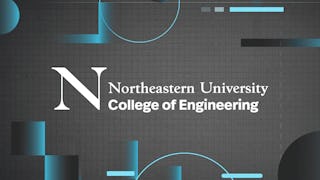The primary objectives of this course are to introduce software engineering techniques and their application to real-world business problems. You will be equipped with practical design and programming techniques for the purpose of modeling significant business applications quickly.


Introduction to Software Development and Applications
This course is part of Information Systems Foundations Specialization

Instructor: Kal Bugrara
Included with
Skills you'll gain
Details to know

Add to your LinkedIn profile
9 assignments
See how employees at top companies are mastering in-demand skills

Build your subject-matter expertise
- Learn new concepts from industry experts
- Gain a foundational understanding of a subject or tool
- Develop job-relevant skills with hands-on projects
- Earn a shareable career certificate

There are 4 modules in this course
In this first module of the course, we will begin with focusing on a general overview of the Software Development Life cycle. It is important as you explore and learn about development, that you understand how the skills learned in this course can translate into your current and future professional experiences. As developers, it is important to reflect on managing user expectations and understanding user needs - which may take several iterations of design and development to completely understand. This is why we focus on iterative development instead of a waterflow approach. We will learn more about these approaches and the key phases of the development lifecycle in this module. Then we will dive into exploring software applications and the need to anticipate risk, the potential for problems, and how to transform the software lifecycle into an actual application. We will learn more about the different components and algorithms in systems and review different real-world examples of the necessary connection between social and application systems. The most important thing to keep in mind is that there is always a social problem that must be solved and that is the key to developing effective application systems.
What's included
6 videos10 readings2 assignments1 discussion prompt
This module, we will begin exploring the design principles associated with designing application systems. the video delves into the challenges faced by modern hospitals due to the complexity of patient movements throughout the day. In this module we will explore how adopting a system view in software engineering can offer innovative solutions to enhance patient care and address these critical issues.
What's included
4 videos7 readings2 assignments1 peer review1 ungraded lab
This module, we will dive deeper into exploring how relationships are intertwined in application development, now focusing on an important component of application system design: the object-oriented paradigm, or OOP. We will learn about different component structures and the relationships between objects, structures, attributes, and behaviors. We will reflect on the complexities of the OOP and how it differs from simple algorithm creation.
What's included
4 videos7 readings2 assignments1 programming assignment
This module, we will explore the connection between businesses and web application development, focusing on the importance of understanding successful enterprises. Exploring the fundamental principles of their operations, we will reflect on how business design plays a pivotal role in shaping software code and digital design. By examining the customer-centric approach of these companies and the emphasis on prioritizing customer experience, we explore key insights on how to create efficient and user-friendly applications with simple code. In this module you will also begin applying what you are learning about business design principles in a lab assignment that focuses on evaluating a campus build model.
What's included
4 videos7 readings3 assignments1 peer review1 ungraded lab
Earn a career certificate
Add this credential to your LinkedIn profile, resume, or CV. Share it on social media and in your performance review.
Instructor

Offered by
Explore more from Software Development
 Status: Free Trial
Status: Free TrialAmazon
 Status: Preview
Status: PreviewNortheastern University
 Status: Free Trial
Status: Free TrialNortheastern University
 Status: Preview
Status: PreviewNortheastern University
Why people choose Coursera for their career





Open new doors with Coursera Plus
Unlimited access to 10,000+ world-class courses, hands-on projects, and job-ready certificate programs - all included in your subscription
Advance your career with an online degree
Earn a degree from world-class universities - 100% online
Join over 3,400 global companies that choose Coursera for Business
Upskill your employees to excel in the digital economy
Frequently asked questions
To access the course materials, assignments and to earn a Certificate, you will need to purchase the Certificate experience when you enroll in a course. You can try a Free Trial instead, or apply for Financial Aid. The course may offer 'Full Course, No Certificate' instead. This option lets you see all course materials, submit required assessments, and get a final grade. This also means that you will not be able to purchase a Certificate experience.
When you enroll in the course, you get access to all of the courses in the Specialization, and you earn a certificate when you complete the work. Your electronic Certificate will be added to your Accomplishments page - from there, you can print your Certificate or add it to your LinkedIn profile.
Yes. In select learning programs, you can apply for financial aid or a scholarship if you can’t afford the enrollment fee. If fin aid or scholarship is available for your learning program selection, you’ll find a link to apply on the description page.
More questions
Financial aid available,

